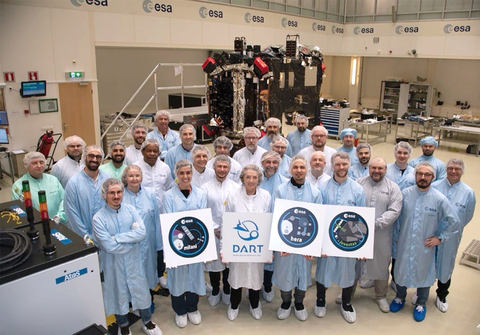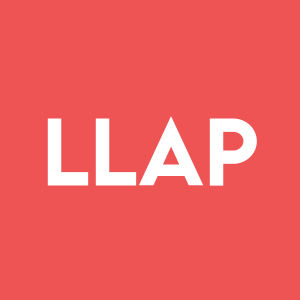Tyvak International’s Milani Satellite Passes Qualification and Acceptance Review for Hera Mission

Tyvak International's Milani Team (Photo: Business Wire)
Milani, a satellite developed by Tyvak International, is dedicated to the visual inspection and dust detection of the Didymos asteroid following the DART impact. It will be launched aboard the ESA’s Hera mothercraft in late 2024. A critical component of the Hera planetary defense mission, Milani will be one of the ESA’s first deep-space nanosatellites, along with being one of the first nanosatellites ever to orbit an asteroid. Tyvak International is fully responsible for Milani’s design, build, and mission operations.
“Just few months ago we delivered Milani to the ESA and now it has completed the intense campaign of system level testing with Hera, along with the ground segment, and ensured the validation of all the interfaces and the end-to-end communication prior to the launch. We are very proud of the work done so far and the successful completion of the Qualification and Acceptance Review,” Margherita Cardi said.
“Today we formally declared Milani qualified for flight. This is the result of extremely skilled professionals who invested extensive engineering, design, manufacturing, and testing hours. The ESA is grateful to every single member of the Tyvak International team for leading a complex European consortium in record time for this historical mission. I can’t wait to see the scientific wonders delivered by this technological marvel. With exploring a new world traveling over 400 million kilometers from our planet, sci-fi is becoming reality,” stated ESA’s Hera Project Manager Ian Carnelli.
The Tyvak International team is currently preparing for the launch campaign activities scheduled for September 2024, in anticipation of the launch in October 2024.
About Tyvak International
Tyvak International SRL, a subsidiary of Terran Orbital Corporation, is a leading European nano and microsatellite provider, based in
About Terran Orbital
Terran Orbital (NYSE: LLAP), is a leading manufacturer of satellites primarily serving the aerospace and defense industries. Terran Orbital provides end-to-end satellite solutions by combining satellite design, production, launch planning, mission operations, and on-orbit support to meet the needs of the most demanding military, civil, and commercial customers. Learn more at www.terranorbital.com.
View source version on businesswire.com: https://www.businesswire.com/news/home/20240711443121/en/
Juliana Johnson
Public Relations
pr@terranorbital.com
949-508-6404
Source: Terran Orbital






